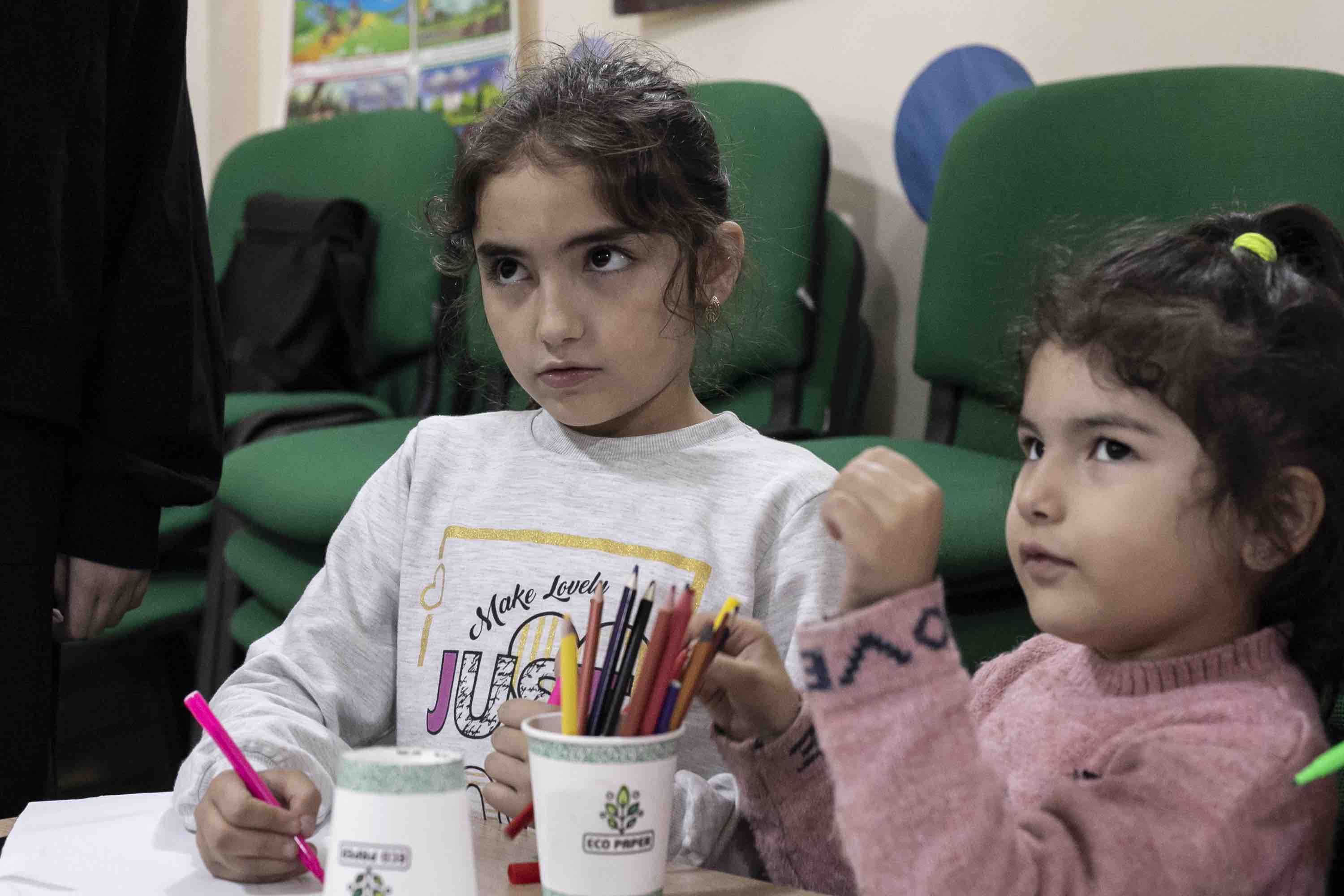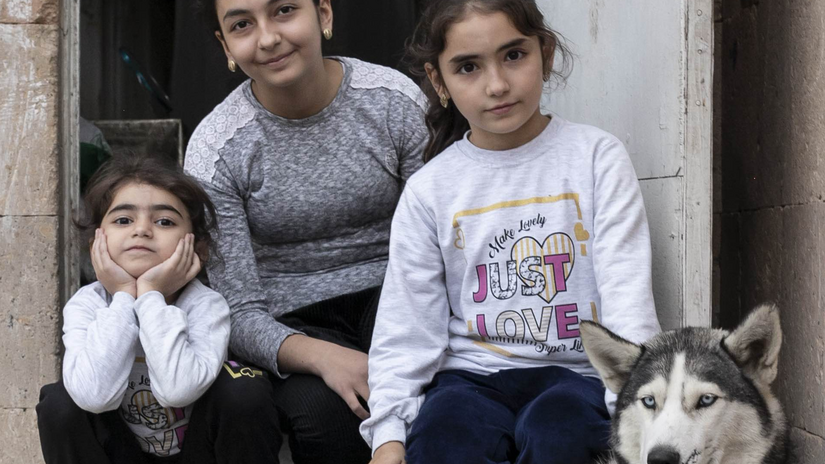“Hi, what is your name? How old are you? Do you have a pet?”
Speaking in perfect English, Mariana greets visitors from abroad with a series of questions at the community shelter in Metsamor. She also lets them know that she’s nine years old and has a dog named Catherine.
Mariana comes from a family of seven – father, mother, grandmother and four sisters. The oldest sister Milena is 11, and the two younger ones, Maria and Lucia are seven and five.
The girls are members of the Smiley Club, a local child-friendly space managed by the Armenian Red Cross. It’s one of 28 spaces across the country where children can go after school to play and get help with their homework. For some, the smiles and support they get here also help them cope with the emotional upheaval they’ve recently experienced.

No other option
Due to the conflict escalation in September 2023, Mariana’s family had to leave their home in Karabakh. They chose to come to Metsamor because they have relatives living here, but the house was not big enough for both families. They eventually had to leave, and didn’t have any other option but to move to a community shelter.
The shelter in Metsamor is hosting around 120 people who came to Armenia, either this year or during the previous escalation in 2020. Conditions are dire – rooms are dark, walls are moldy and there is no heating or insulation ahead of the coming winter. Mariana’s family shares a single bedroom and a kitchen.
The parents are working hard to be able to buy a house, but it will take them several years to collect enough money. Until then, without help, they have no hope of leaving the shelter
Dire need for shelter
They are not alone with this concern. One month into the emergency, shelter is becoming a critical need for thousands of families who left for Armenia. Most are staying in community shelters, paid accommodation or with host families.
Armenian Red Cross volunteers are providing food, hygene and household items, but there’s an immense need for long-term support. Rent and utility costs are expensive, and many displaced families have no regular income and very limited savings.
“The local community has shown immense solidarity, welcoming people from Karabakh into their homes,” says Hicham Diab, IFRC operations manager in Armenia. “Even so, this is not a sustainable solution – displaced people need more permanent and dignified shelter options. Rent and utilities support are key elements of response, but at the moment our IFRC Emergency Appeal is only 23 per cent funded. We are counting on the support of partners inside and outside the Red Cross Red Crescent Movement to help.”
“We are thankful to our partners for standing by our side in this situation,” says Anna Yeghiazaryan, Secretary General of the Armenian Red Cross. “The scale of humanitarian need is huge, and responding to it is impossible alone. We are sure that mobilizing the power of humanity will allow us to help those who are in desperate need and try to restore their lives in new place.”





